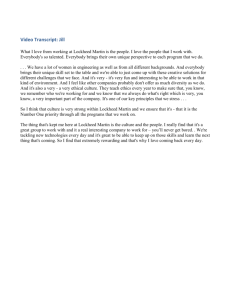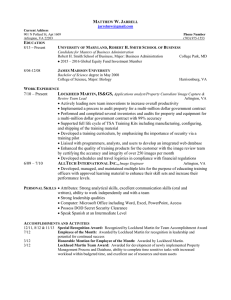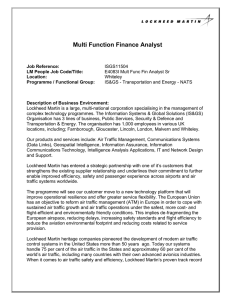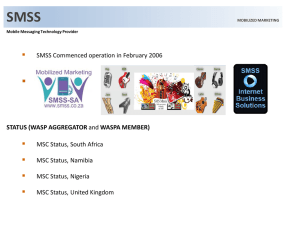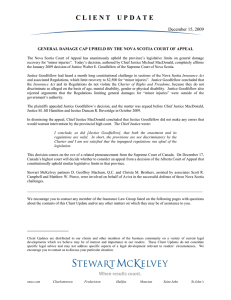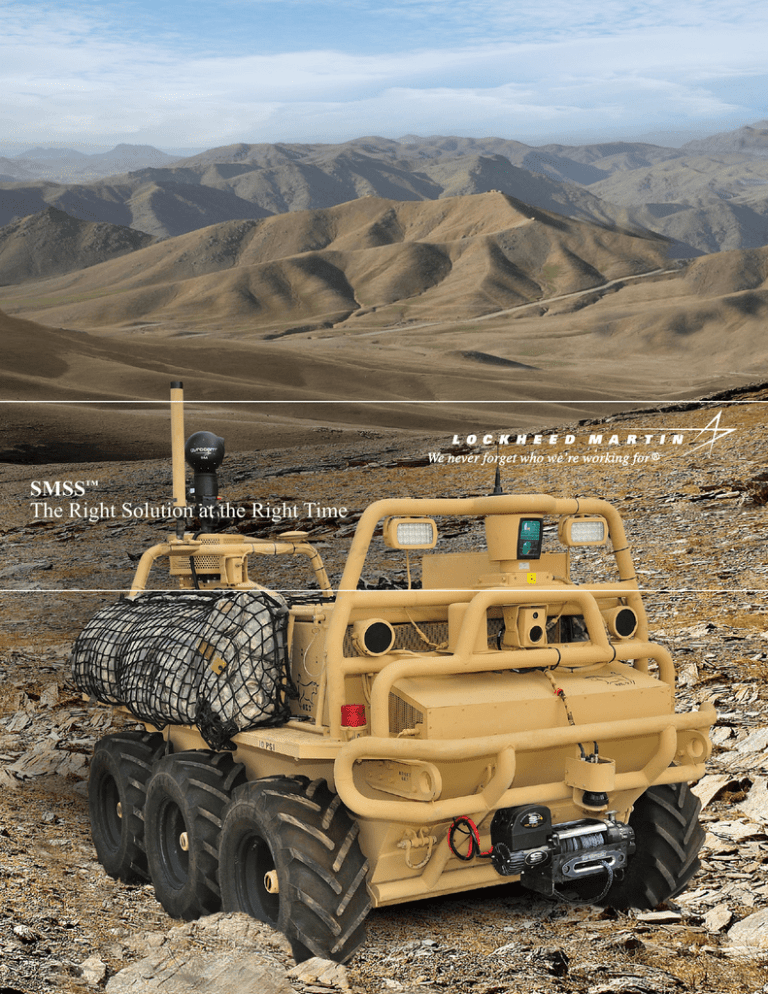
SMSS™
The Right Solution at the Right Time
SMSS™
Supervised Autonomy Trusted
for Afghanistan Deployment
Lockheed Martin’s Squad Mission Support System is a multi-mission, semi-autonomous unmanned ground
vehicle (UGV). With selectable modes of operation ranging from tethered control to supervised autonomy,
SMSS is a reliable robot capable of executing dangerous or mundane tasks, enabling people to focus on
activities requiring human skill, intelligence or perspective. SMSS is designed to accommodate mission
equipment packages to carry out tasks related to:
• Intelligence, surveillance,
reconnaissance (ISR)
• Transport and logistics
• Counter-mine/counterimprovised explosive device
(C-IED)
• Indirect fire/fire support
•
•
•
•
Direct fire/assault
Heavy mortar
Medical evacuation
Communications
SMSS Attributes
SMSS performance has been validated through numerous government evaluations resulting in five Safety
Releases and one Safety Confirmation, affirming the maturity and dependability of SMSS autonomy technology. Supervised autonomy and obstacle avoidance enable the system to drive in a supervised autonomous mode until it encounters an unavoidable or unrecognizable obstacle.
Modes of Operation
• Follow Me (follows a
designated person, without
need of identifying tags)
• GPS Waypoint Navigation
(enter a coordinate path into
a digital map, or memorize
digital “breadcrumbs” and
save paths for later use)
• Retro-Traverse (return via
the path generated to the
point of origin)
• Go-to-Point (traverse to a
selected waypoint)
• Come-to-Me (return to
the operator)
• Tele-Operation/Remote
Control Operation
• Manual Drive
• Registered Map (overhead
imagery) Recognition/
Road Following
• Voice Command
Features
•
•
•
•
•
•
EO/IR cameras for non-line of sight operation
6x6 drive
Skid steer drive
NATO port 24 VDC
Battery charging station
Sling load lift points
• Tow bar and lock out hubs for easy
towing options
• 9,000-lb (4,082 kg) capacity removable/
relocatable winch
• White and infrared task lights
Proven Performance: Test Track to Afghanistan
Specifications
Range
Control
Gross Vehicle
Weight
125 miles (200 km) – Block 1
•Follow Person and
Follow Vehicle
•Voice Control
•Tethered or Remote Line-ofSight (LOS) Control
•Non-Line-of-Sight (N-LOS)
Teleoperation
•N-LOS Supervised
Autonomy
4,300 lb (1,955 kg)
Payload
Vertical Step
Gap
Transportability
1,500 lb (682 kg)
16 in (0.41 m)
30 in (0.8 m)
•Internal: CH-47, CH-53
•External: UH-60
Variants
•Reconnaissance, surveillance and target acquisition
•Transport and logistics
•Counter-mine/counter-improvised explosive device
•Indirect fire/fire support
•Direct fire/assault
•Heavy mortar
•Communications
SMSS has been successfully demonstrated in more than seven U.S. and British Army evaluations that used
the system for cargo transport missions, as a portable power asset and increasingly as an ISR asset with a
mast-based Gyrocam® 9M Tactical Surveillance Sensor.
The U.S. Army selected SMSS for Project Workhorse UGV in 2011 that was executed in 2012. Four SMSS
vehicles were sent to Afghanistan for a five month in-theater assessment by and around soldiers. The
system was used for a variety of transport and logistics missions, including combat outpost and strong point
resupply, demolition materiel transport, communications equipment transport, portable power and battery
charging, and transport of infrastructure materials such as fencing equipment and tools.
Mission Growth
SMSS successfully participated in U.S. Government C-IED evaluations in September 2012 at Fort
Leonard Wood. Equipped with a government-developed roller-rake system, SMSS successfully disrupted
or defeated all IEDs in the test field while demonstrating superior mobility. Recent U.S. Government
experiments equipped the system with reconnaissance, surveillance and target-acquisition gear and
controlled it via satellite by an operator 200 miles away, transmitting standard and infrared video back to a
remote operator station.
The long-term vision for SMSS includes armed variants (less-than-lethal as well as lethal), within the
concept of supervised autonomy, while improving its reconnaissance, surveillance and target-acquisition
capabilities.
Lockheed Martin’s experience in unmanned systems is unmatched, with proven capabilities in air, land, sea
and space domains. An integrated systems-engineering approach allows Lockheed Martin to meet the challenges of network-centric warfare where both manned and unmanned technologies work collaboratively,
increasing the affordability and efficiency of the total force and, ultimately, its mission success.
Lockheed Martin Corporation
Missiles and Fire Control
Business Development
Phone: (972) 603-9219
www.lockheedmartin.com/mfc
© Copyright 2013 Lockheed Martin Corporation. All rights reserved.
SMSS is a Trademark of Lockheed Martin Corporation
Gyrocam is registered in the U.S. Patent and Trademark Office by Lockheed Martin Corporation.
DPCMB0528. Approved for Public Release DAL201212004
Scan the tag below
with your mobile device
to view MFC Overview video

